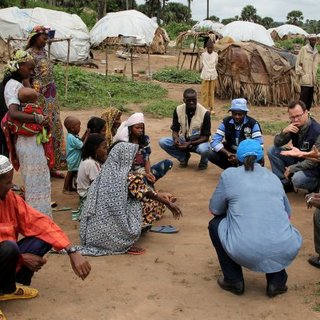Accountability has long been at the forefront of humanitarian discourse, but progress for crisis-affected people is stalling. The ‘participation revolution’ promised by the Grand Bargain hasn’t materialised and those giving feedback are increasingly disillusioned by what they experience as a non-responsive and top-down aid system.
Reduced budgets and rising needs are leading stretched donors and agencies to question whether they must trade off community engagement approaches against ‘life-saving’ activities.
Feedback mechanisms have become prolific in humanitarian responses, but agencies struggle to close the feedback loop by meaningfully addressing local concerns, particularly for people trapped in protracted displacement or multiple cycles of crisis.
Evidence shows strikingly slow progress on experiences of aid and AAP mechanisms
Only 36% of respondents recently surveyed by Ground Truth Solutions in the Democratic Republic of Congo and the Central African Republic felt they could influence the humanitarian response. Core Humanitarian Standards (CHS) Alliance’s Humanitarian Accountability Report 2022 found commitments related to accountability among the lowest scoring. Evaluations of responses on COVID-19 and Ukraine also indicate poor progress.
Tweaking the system, without improving outcomes
Despite high numbers of humanitarian country teams with accountability frameworks and Accountability to Affected Populations (AAP) working groups, there are few tangible results for people in crisis. The State of the Humanitarian System (SOHS) report showed only 36% of aid recipients believed agencies communicated well, while only 33% felt able to provide feedback or complain.
Despite many international agencies working to improve the quality and widespread use of AAP mechanisms on their own and in inter-agency fora, such as the Inter-Agency Standing Committee (IASC) Task Force’s portal of AAP resources and helpdesk, and work on collective accountability mechanisms, these widespread efforts have not translated into meaningful community engagement.
